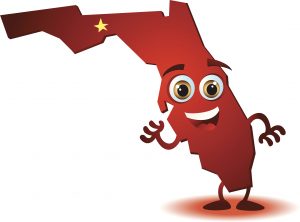When I saw that someone was brave enough to open an IP-focused law firm in New York City in the midst of our current COVID-19 craziness, I said to myself that I had to try to interview that person. And when I dug deeper, and saw the interesting story of the firm’s founder, my resolve grew only deeper. Thankfully, she agreed to my request for a written interview, which I am pleased to bring to this readership. So read on for an introduction to a tenacious, accomplished, and wise-beyond-her-years law firm founder.
Nikki Breeland is from Fontana, California, and grew up in the arts. She attended a magnet school for the performing arts, where she excelled in the theater, music, and dance programs. Nikki attended Mississippi University for Women, and obtained her B.A. in political science in 2013. She also attended Missouri University of Science & Technology where she obtained her B.A., summa cum laude, in history in 2015. Nikki received her J.D., magna cum laude, in 2018 from the University of Mississippi School of Law, with a concentration in entertainment and sports law, where she served as a member of the Mississippi Law Journal, Federal Courts Law Review, and Mississippi Sports Law Review. After graduating law school, Nikki served as a federal judicial law clerk for the Honorable Jimmy L. Croom at the United States Bankruptcy Court for the Western District of Tennessee for the 2018-2019 term. Nikki obtained her LL.M. in intellectual property from Cardozo School of Law in 2020 while serving as a textbook editor for Barbara Kolsun and Douglas Hand’s The Business and Law of Fashion and Retail. Nikki has been published twice, with her article, “Bad Blood”: Reconciling the Recording Industry and Copyright Protections on the Internet, published in the 19th volume of the Florida Coastal Law Review in 2019. Her first article, “All the Truth I Could Tell”: A Discussion of Title VII’s Potential Impact on Systemic Entertainment Industry Victimization, was published in the 25th volume of the University of California Los Angeles Women’s Law Journal in 2018. Nikki is licensed to practice in New York State and focuses on entertainment and intellectual property law at her firm, Breeland Law, PLLC.
As usual, I have added some brief commentary to Nikki’s answer below but have otherwise presented her answer to my first question as she provided it.
1) You have a great quote from Milton Berle prominently displayed on your website. How does that quote encapsulate your professional story so far?
NB: Ah, THE QUOTE. I have probably heard this quote a hundred times in my life, but it never really resonated with me until this year. I was on a mini beach weekend with my husband discussing what my plans were for my career, since I had been spending whole days applying for jobs and seemed to be getting nowhere, when we stopped off in a restaurant gift shop. My husband picked out an SPF shirt and a mug, and I was looking around at the trinkets when I saw it: a ring dish that said, “‘If opportunity doesn’t knock, build a door.’ — Milton Berle.” I stopped dead in my tracks and immediately bought it. That’s the moment I credit with giving me “the sign” we all desperately ask for and rarely ever get. I told my husband that night that I was going to take a more active role in my own career: I would start my own firm.
I will say, though, that the sentiment shows itself in my career path so far. I graduated from college when I was 21 years old, with a political science degree, and became a military housewife. There were not many opportunities in Waynesville, Missouri, for a recent graduate who would be moving in a few years, so I enrolled and got my second bachelor’s degree at a local university. Then, when my husband and I moved to our new duty station in Alabama, I realized that the opportunity for me to start a career was never going to present itself conveniently, so I applied to law schools within a 6-hour drive and started in 2016, living as a geographical bachelorette. In law school, my classmates got jobs working at huge litigation firms in large cities, but I knew I did not want that life. So, I worked smaller clerk jobs and went to school year-round, which helped me graduate a year early. I also used my law journal notes and a class paper to get published externally in my field. I was the first student to graduate from my law school with an entertainment and sports law concentration, after having to fight to receive it. After serving the U.S. Bankruptcy Court in Jackson, Tennessee, where I was again a geographical bachelorette, I took the New York Bar Exam and passed. Finding that not many law firms or professional opportunities were terribly fired up about an applicant with a Tennessee address, I decided that what I needed was a connection to tether me to the city, to give me a network, and to cement my specialty, so I enrolled in an LL.M. program which gave me excellent opportunities, like working with the Harry Fox Agency, Volunteer Lawyers for the Arts, and the Fashion Institute of Technology. Yet, even with a resume as full as mine, I could not predict a global pandemic, and when jobs did not come crawling to offer me an associateship, and with a little push from Mr. Berle, I made my own opportunity to live my dream: Breeland Law, PLLC.
I’m basically a carpenter at this point, show me where the nails and 2x4s are and I will get to work.
GK: It is hard to not be supremely impressed with Nikki’s tenacity, capacity for hard work, talent, and ambition, once you hear her story. Each of those characteristics will serve her in good stead in developing her firm’s business going forward. Moreover, her story stands as a lesson in perseverance and drive for her fellow recent graduates, as well as a shining example of the value of taking responsibility for one’s career progress. It is easy in our industry to focus on the gilded road seemingly placed before top graduates that smooths their way to prestigious clerkships or government work, or lands them as new hires at high-paying law firms. But that is the story for a small batch of law students each year. At the same time, the opportunity to carve out a successful career with a law degree is vast, even in the midst of the (creative?) destruction wrought by the current pandemic. Resilience, self-belief, and a willingness to learn from stories like Nikki’s are the building blocks for long-term success in what I have longed called our brutal (in the best sense of the word) yet noble profession.
Next week, we will conclude our interview with Nikki focusing on how she sees Breeland Law’s niche in the NYC IP marketplace, as well as her keen advice for today’s law students.
Please feel free to send comments or questions to me at gkroub@kskiplaw.com or via Twitter: @gkroub. Any topic suggestions or thoughts are most welcome.
Gaston Kroub lives in Brooklyn and is a founding partner of Kroub, Silbersher & Kolmykov PLLC, an intellectual property litigation boutique, and Markman Advisors LLC, a leading consultancy on patent issues for the investment community. Gaston’s practice focuses on intellectual property litigation and related counseling, with a strong focus on patent matters. You can reach him at gkroub@kskiplaw.com or follow him on Twitter: @gkroub.












 Kathryn Rubino is a Senior Editor at Above the Law, and host of
Kathryn Rubino is a Senior Editor at Above the Law, and host of 






 Tyler Broker’s work has been published in the Gonzaga Law Review, the Albany Law Review, and is forthcoming in the University of Memphis Law Review. Feel free to
Tyler Broker’s work has been published in the Gonzaga Law Review, the Albany Law Review, and is forthcoming in the University of Memphis Law Review. Feel free to